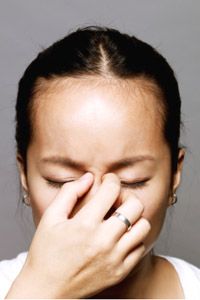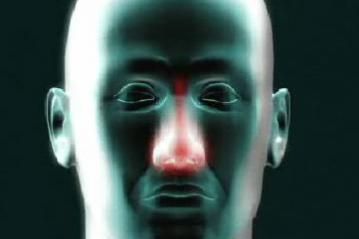There are several kinds of skin allergies and each presents with slightly different symptoms. Here is an overview that will help you identify the three most common types of skin allergies.
Eczema, a scaly, red, itchy rash, is most common in people with a history of asthma or allergies and in infants. It usually affects the knees, elbows, face, scalp and back of hands. Eczema can be triggered by allergens (such as foods or pollens you are allergic to), irritants (such as itchy fabric or certain soaps), overheating, sweating and stress. You can treat eczema with cold compresses, calcineurin inhibitor creams, topical steroids and antihistamines.
Advertisement
Hives are itchy, red, raised areas that may develop as a result of food or drug allergies. A swelling of the deeper layers of the skin (usually of the eyelids, tongue, lips, hands and feet), known as angioedema, sometimes accompanies hives. Aside from antihistamines and steroids, you can relieve your symptoms with cool compresses, cool showers and wearing light or loose clothing until the hives go away, which can take several days.
Contact dermatitis is a red, itchy, blistered reaction that is often painful. Poison ivy, cosmetics, perfumes, dyes, latex products and some medication ingredients can cause contact dermatitis. The reaction might not occur until 24 to 48 hours after you have contact with whatever causes the dermatitis. Scrub the affected skin with soap and water, use cool compresses, calamine lotion, milk soaks, oatmeal baths, antihistamines and cortisone medications for relief. Contact dermatitis takes two to four weeks to go away completely, even with treatment.
If you have skin allergies you should make an appointment with an allergist, who can test you to find out what your skin is reacting to and prescribe medications to treat your symptoms. An allergic reaction can start with symptoms of the skin and can progress to become quite serious. Symptoms of anaphylaxis, a life-threatening allergic reaction, include difficulty breathing, rapid heartbeat, lightheadedness, and loss of consciousness. If you begin to have any of these symptoms, seek immediate medical care.
Advertisement

